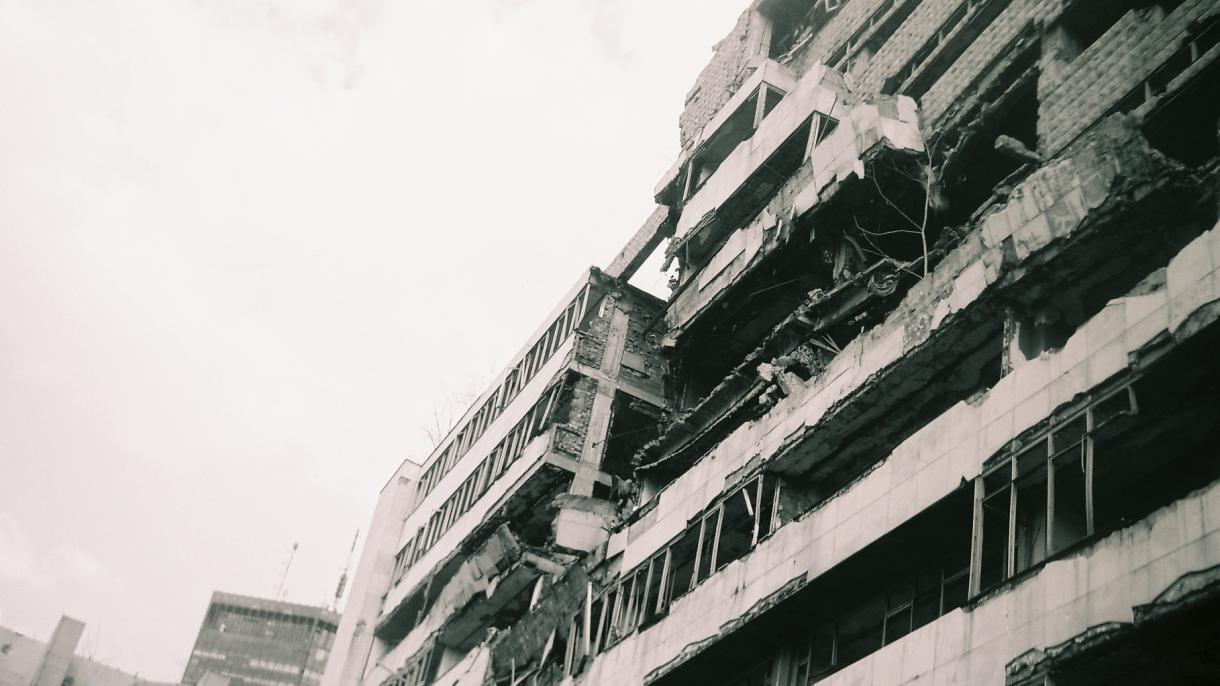
Panel discussion
- Thursday, 23. May 2019 6:00 pm – 8:00 pm Save in my calendar
20 Years NATO Intervention in Yugoslavia
Considerations, Experiences, Controversies
On 24 March 1999 NATO began its air strikes on what was then the Federal Republic of Yugoslavia; this constituted the first combat mission of German troops since the end of World War II. What had been planned as a brief intervention, with the aim of mobilising the population against Yugoslavian president Slobodan Milošević and thus forcing the withdrawal of Serbian troops from Kosovo, developed into a 78-day air war. Above all it was the civilian population that suffered. Serbian armed forces and paramilitary units forced hundred thousands of Kosovo-Albanian civilians to leave their home; thousands were killed. While on 10 June 1999 a peace agreement stipulating UN administration and the deployment of a NATO peacekeeping force in Kosovo ended the military operations, violence did not stop. A vengeance campaign against the Serbian population in Kosovo ensued, with more people killed and mass expulsions. To this day the NATO-led KFOR is stationed in Kosovo to restrain ethnic conflicts in the region. Kosovo’s declaration of independence of 17 February 2008 has not yet been recognised by Serbia.
Conducted without a mandate of the UN Security Council and despite the veto by Russia and China, this attack on the Federal Republic of Yugoslavia, a sovereign European state, radically changed the discussion on international responsibility to protect. The question of the legitimacy of “humanitarian intervention” in the Kosovo War led to a polarising debate around the world between the opponents and supporters of war.
We would like to use this 20th anniversary of the NATO intervention as an opportunity to discuss the legacy of this event with experts and with the parties involved. Our focus will be on the personal and political experiences and controversies, on the consequences and implications of the intervention at global and regional level and not least of all on the lessons learned in view of subsequent conflicts.
Panel
Introduction
- Katarina Ristić & Elisa Satjukow (University of Leipzig)
Facilitation
- Simon Ilse (Heinrich Böll Stiftung, Belgrade office)
Guests
- Nora Ahmetaj (Centre for Research, Documentation and Publication Prishtina)
- Winfried Nachtwei (former politician, member of Bündnis 90/Die Grünen)
- Sofija Todorović (Balkan Investigative Regional Network)
- Stefan Troebst (Leibniz-Institut für Geschichte und Kultur des östlichen Europa)
You are cordially invited to join the reception after the discussion Leibniz-Institut für Geschichte und Kultur des östlichen Europa Specks Hof (Entrance A), Reichsstraße 4-6, 04109 Leipzig
Venue:
GWZO
Specks Hof, Reichsstraße 4-6, 04109 Leipzig
The podium discussion will be dt./engl and engl./dt. interpreted.
Contact: Petra Zimmermann, Projektkoordination Ost- und Südosteuropa
E-Mail zimmermann@boell.de
......................................................
Tipp: 24.-25. May 2019, Leipzig
20 Years after the NATO Intervention in Yugoslavia: Local, Regional and Global Aspects of 'Humanitarian interventions'
- Language
- German
- English
- Simultaneous translation





